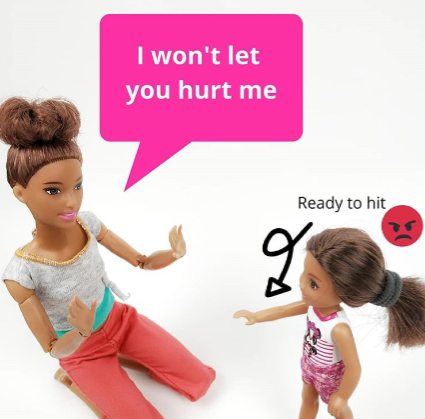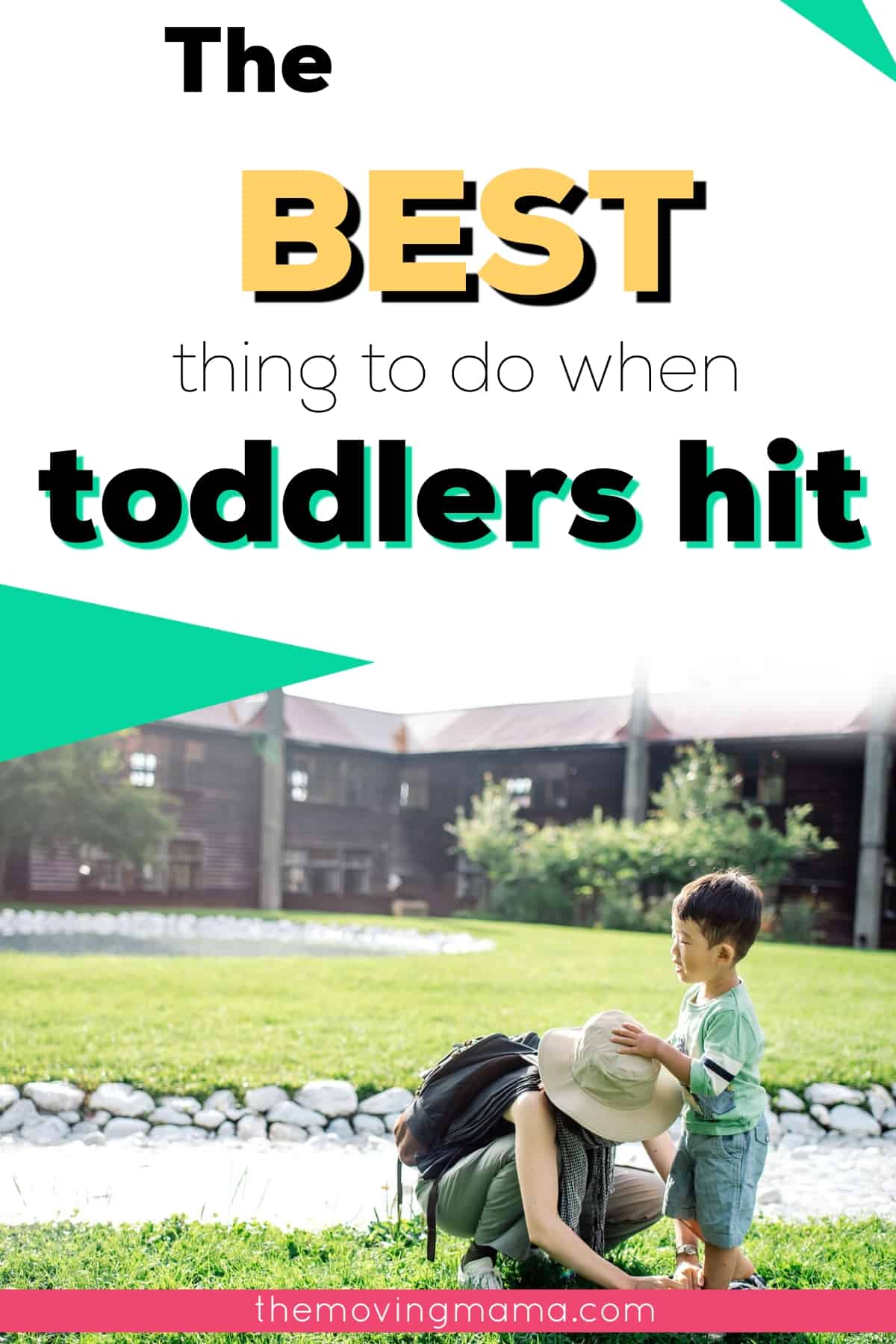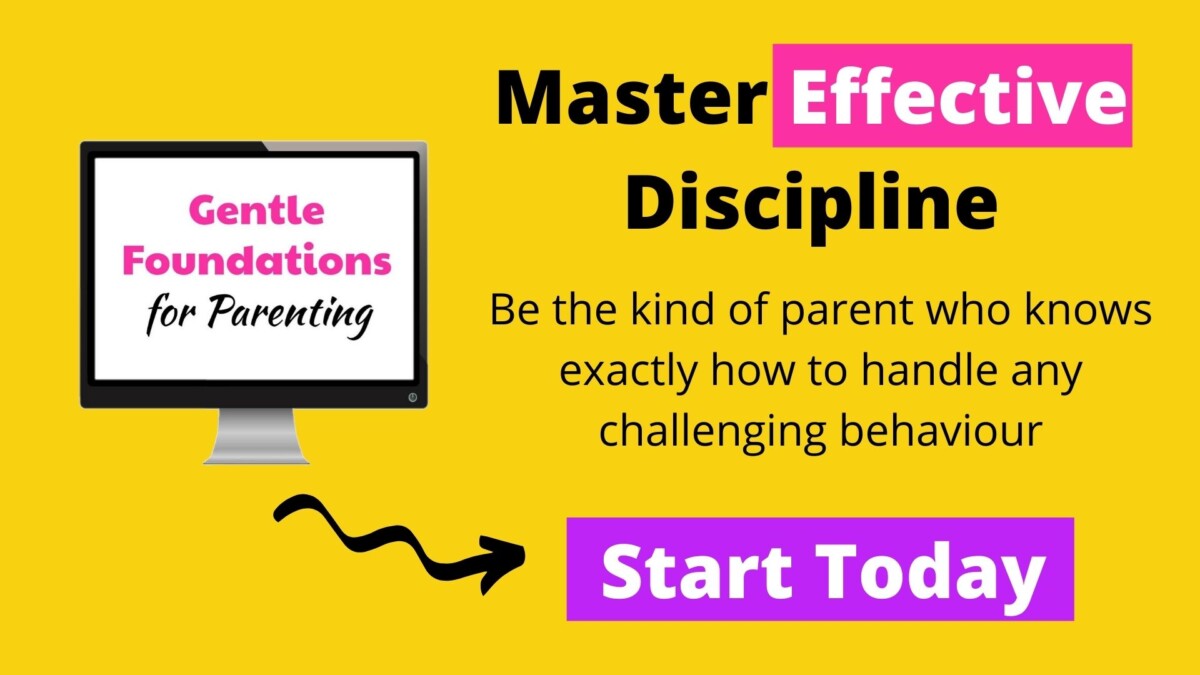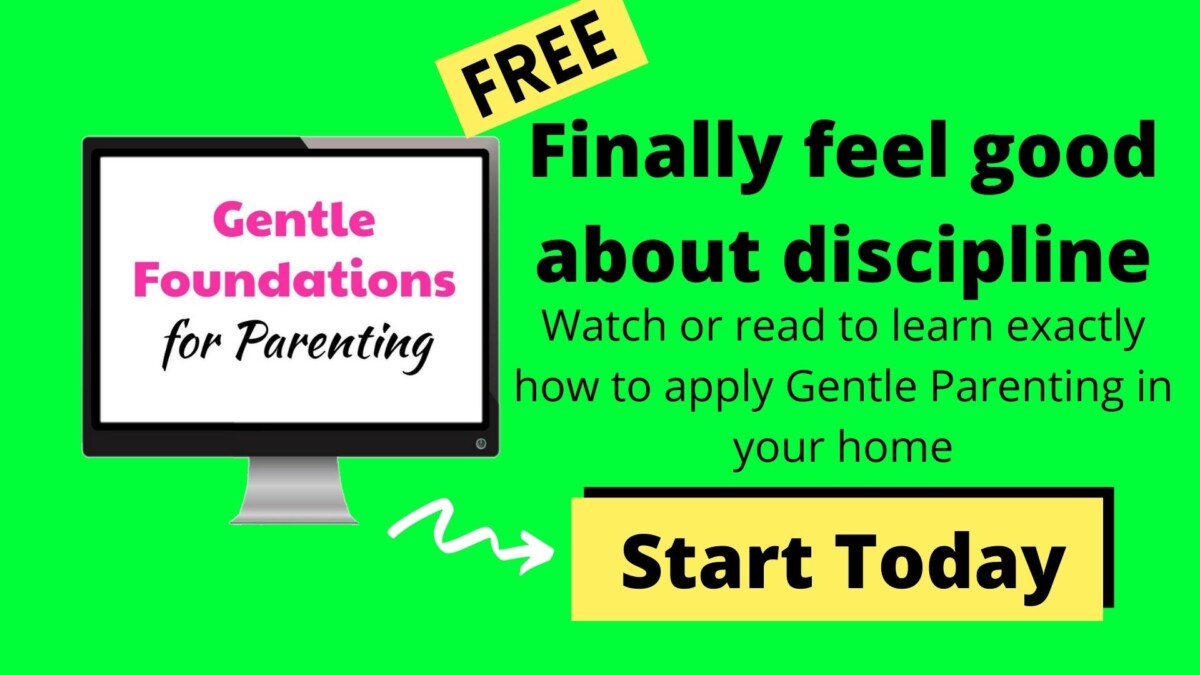Has your toddler been hitting you lately and you don’t know what to do? Here is a gentle strategy to help them learn not to hit.

(This post might contain affiliate links, which means if you happen to buy a product I love then I may get a commission – at no extra cost to you! For all the Ts and Cs go here.)
Maybe it’s been a quiet day, but your toddler starts to become more and more cranky. They’re overtired and overstimulated. They try to do something that is dangerous, so you stop them (for their protection of course) and then SMACK.
They hit you.
For a lot of parents (including me), this can be a really triggering scenario. Has this ever happened to you before? Your child hits you and you suddenly feel this fierce energy that it’s actually difficult to know what to do to handle the situation?
Well here are some quick tips to handle this scenario to remember to keep on handle so you’re not stuck feeling stunned, not knowing how to handle your child.
(Psst, don’t want to read? Watch the video I made below instead)
Address the Behaviour in a Matter-of-Fact Way
You can say something like, “Hitting hurts my body.”
But avoid saying anything like, “How could you do that to my mommy?” You don’t want them to feel ashamed, but rather you want them to clearly understand the situation and why hitting wouldn’t be ok. The reason hitting isn’t ok is because it hurts people. No shame necessary.
If you know that they already know hitting hurts, then just say something like, “I won’t let you hurt me.” This sets the boundary for them to know it’s not ok, and it also supports your child as they might actually feel out of control as they’re about to hurt you. Setting this boundary also helps to show them that you are there to help and support them when they feel out of control.

Model the Behaviour You Want to See
You can say, “Use gentle hands,” and show them exactly how you want them to touch. Touch them gently as a hands on experience for them to remember how they should touch people.
Validate their Emotions
Chances are your child wasn’t out to get you with this premeditated desire to ruin your day. Your young child probably felt a strong wave of emotions and with their lack of impulse control lashed out by hitting you. Instead of their emotions coming out in appropriate words like, “Mommy, I feel angry,” their emotions came out physically in an inappropriate way.
So right now you want to take the opportunity to validate their emotions. This means that you are going to identify and label their emotions. It does NOT mean that you are in turn accepting the behaviour that come from those emotions though.
You can say something like, “You seem very ____. Is that right?”
This gives them some of the vocabulary that they just might not have yet in order to express their emotions.
It’s a powerful thing for a child to learn how to express their emotions in words, because it will help them to use words instead of physical aggression.
Depending on their age you can even make an emotions chart where you have faces expressing different emotions. Your child could then point to the emotion that they are feeling.
Related: Toddler Tantrums (The Full Effective Guide)
Try to Stay Positive
Try not to get too flustered after your toddler hits you. It can be tempting to lash out, especially if you feel triggered when your toddler hits.
When your toddler hits and you think you’re about to say something that might hurt, instead tell yourself a mantra to help motivate you to stay positive. You can say something like, “They’re still learning how to express their anger.” “I can help them get through this”
Using Gentle Parenting is a really great discipline approach that help you to become a more positive mom. Rather than zooming in on your child’s behaviour you can focus on your connection with them. If you want to become a positive mom through the power of Gentle Parenting definitely sign up for my free Gentle Parenting course below.
Offer Alternatives
Help your child learn to express what they want in ways other than with hitting, and make sure to respond to their requests without ignoring them.
After you have addressed their emotions, you can also say something like, “You really wanted more grapes. Next time just say, “More grapes, please” so I can get you more grapes.”
Make it as simple or as complicated as you want, but keep in mind toddlers often understand a lot more than we give them credit for.
Or say they were trying to do something dangerous and you had to stop them, so they hit you. Is there an alternative activity they can do that meets the same desire? Maybe they were trying to climb on the coffee table (which is dangerous) but you’re ok with them climbing on the couch so you can send them there instead.
You can say something like, “I can see that you are really angry I won’t let you climb on the coffee table. Let’s find a safe place to climb, here try the couch.”
And what if they still hit tomorrow?
So here’s the thing we as Gentle Parents really need – patience.
Because Gentle Parenting isn’t about getting immediate obedience 100% of the time from our child, but it’s about teaching them to want to do the right thing.
A child who is afraid of the punishment might obey immediately, but when that punishment is no longer a threat they might not still have the desire to do the right thing.
So if you child hits you again tomorrow just remember to be CONSISTENT. It might really be testing your patience for this behaviour to repeat itself, but stay calm and consistent. By always having the same reaction your child will know what to expect and they will learn not to hit.
If though it just seems like there isn’t any progress with the hitting being made you may need to ask yourself if there is a deeper issue at work here. Maybe they’re really struggling with communicating their feelings? What sort of activities could you play together to encourage them to learn to identify feelings?
The most important thing is to stay calm
Next time your toddler hits you, use these tips, but most of all, remember to stay calm.
It’s not always easy to stay calm, but it will help you to respond better to your child. After they hit you it’s a teachable moment, and when you are able to stay calm you’ll be able to think clearly about how to handle it, and your child will benefit the most from the teaching moment.
And don’t worry, hitting is usually a phase they will outgrow as they get older and gain more impulse control. You got this, mama!

More Toddler Discipline Posts
The BEST way to handle a 3-4 year old who lies




Our 3 year old son has been hitting, scratching and spitting on us for about two years now. We feel helpless, and downright angry at thus behavior. The patience well just isn’t deep enough. He articulates his frustration just fine, but doesn’t respond to any redirection or things we say. We are so so tired, and frustrated by thus gentle parenting community to be quite honest.
Just a reminder, but there are references to Moms here, but Dads are doing this too. 🙂
Thank you for pointing that out! I need to go back to my old articles to reword things to better represent how I talk nowadays anyways 🙂
Any idea why my 15 month old daughter hits me and not my husband? After I tell her hitting hurts mommy she turns and hits the floor or whatever else is around her. She doesn’t seem genuinely mad though. She honestly seems like she’s kinda faking mad! Very confusing.
It’s such good practice right now to remind her that hitting hurts, eventually that will sink in, but for now at 15 months that’s still a very complex concept. There are a lot of different reasons why your daughter might hit your more than your husband so it’s hard to say. It might even be that she feels most comfortable with you, so you get the release of her emotions in the form of a hit. It’s hard to say.